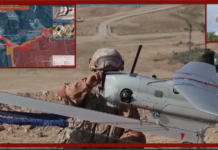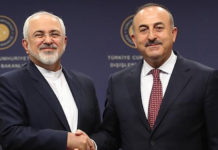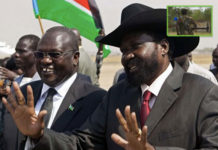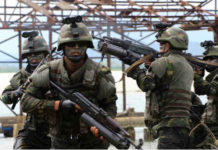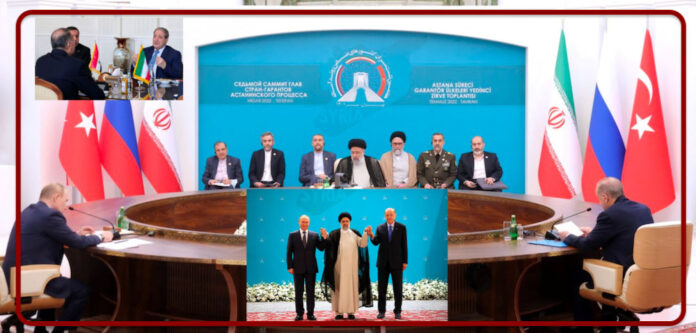
While the West continues to shout about the anti-West alliance born at the Tehran summit between Russia, Iran and Turkey, or to put it in the words of the US media and politicians: a summit that showed Putin’s isolation, it must be stressed that this summit was actually on the one hand the continuation of the Astana agreements on Syria, and on the other hand the continuation of a new Russian foreign policy that began well before the Special Operation in Ukraine, which only accelerated a process that had been underway for a long time.
Taking a step back: starting in 2021, Moscow realised that there would be no room for negotiations with the United States and Europe on the NATO enlargement issue, and while leaving the door open, it began to look around, and the agreements signed on 5 February 2022 with China are an example of this.
The Tehran summit, for which Putin moved from Moscow, thus had foreign policy as its main focus, showing how the centre of the global geopolitical chessboard is now no longer on the Atlantic but on the Pacific. Recall the numerous economic agreements signed with India in the last period such as the supply of gas and oil at reduced prices but in large quantities. The first and then the current attempt with the Brics countries (Brazil, Russia, India, China South Africa) to create a new exchange currency, different from the dollar, and again the question of a bank for the Brics, the New Development Bank (Ndb) and now India has also proposed a rating agency for the Brics.
The Tehran meeting should therefore be seen not as an anti-Western alliance, but as the continuation of foreign policies initiated at least 12 years ago by Moscow. US blindness and Europe’s inability to be a power risk isolating the Old Continent and the Sick Giant, while the rest of the globe remains interconnected.
Returning to the Tehran summit, we dwell on the statements of Russian Prime Minister Vladimir Putin: “Turkey has done a lot to reach an agreement on Ukrainian grain exports but the authorities in Kiev have refused to implement the agreements and have no intention of doing so even now. And again he said, Ukraine has closed one of the two gas transit routes through its territory for political reasons’.
The Ukraine chapter is apparently closed for Putin. War will do what politics has failed to do. It will stall and try to get Europe into trouble. From the way the Russian premier is moving, in fact, contrary to what NATO says, there seems to be interest in a long war, on the Syria model.
Returning to Putin’s statements: ‘Russia and Iran have good prospects for cooperation in several areas, including infrastructure development. Iran, after years of sanctions, needs to rebuild the country: from energy infrastructure to transport and remember the development of nuclear power, which Putin could support, to a limited extent, in exchange for fast drones, which he currently needs in Ukraine.
Putin also claims that: “The Europeans bet on unconventional energy because they are great specialists in unconventional relations. The energy crisis in Europe was caused by unfavourable climate conditions for green energy. The West itself closes the energy routes to Russian resources and imposes sanctions. Gazprom is ready to pump as much as it needs. all air restrictions on Russian grain exports will be lifted’.
Finally, the real core of the summit: the Syrian issue. Iran, Turkey and Russia have very different sights on Syria, and lately Turkish action is not seen to be to the liking of the Russians and Iranians. Four main topics were discussed: the situation in Idlib, the Syrian Constitutional Committee, the return of Syrian refugees and Turkey’s possible operation in north-eastern Syria. Common was the view that the United States should leave Syria. On the contrary, the statements of the Russian and Iranian presidents indicate their rejection of any Turkish military aggression in northern Syria, as Erdogan has therefore not been given any green light to launch a new attack. Although it does not seem that this will stop it, since it seems that Turkey will continue its battle against the Kurds, labelled as terrorist organisations, without caring who supports it.
Putin specifically said: ‘The backbone of international terrorism has been broken in Syria; the east of the Euphrates (oil region) must be placed under the control of the official authorities in Damascus. Crimes, separatism, extremism in territories outside Damascus’ control are facilitated by the destructive line of Western countries led by the USA. Syrians must determine the fate of their country themselves. Many urgent issues have accumulated to stabilise the situation in Syria. The level of violence in Syria has decreased significantly and a genuine process of political and diplomatic resolution has begun. Syrians have shown a willingness to agree on priority issues for the future of their state. The sanctions against Syria and the Syrian people are leading to very regrettable results: almost 90% of the population is living below the poverty line. The US military must leave the East Euphrates and stop plundering Syria by illegally exporting oil. All humanitarian aid must go through the official Syrian authorities. Russia, Turkey and Iran have differences over Syria, but the countries support the constitutional process’.
Although he was not present at the meeting, although he did travel to Tehran on the same days, the Syrian government’s Minister of Foreign Affairs, Faisal Miqdad, expressed his opinion on the summit, believing it to be proof of the importance of Syria’s role in the region. Furthermore, he expressed satisfaction with the role played by the Iranian side in the talks. He also added that any Turkish aggression on Syrian territory and the establishment of a safe zone will destabilise the region; that the Syrian people will strive to expel the occupiers and America and Israel have already tested the will of the people to end the occupation. Finally, he called on the international community to actively contribute to the reconstruction process in Syria and to allow the return of refugees.
Khamenei emphasised during his meeting with Erdogan that any military action in Syria will harm Turkey, Syria, and the region, that it is necessary to preserve Syria’s integrity, and that any military action inside Syria will benefit terrorists. Interestingly, the Iranian media reported on the strategic importance of Tal Rifaat, for Iran, to the point that it is considered an issue that cannot be negotiated. Khamenei then also addressed Putin, emphasising the above about the necessary removal of US forces from Syria, specifically from the oil fields in eastern Syria.
Erdogan said that there is an intention to hold regular meetings within the Astana process to find a solution to the Syrian crisis. He spoke of steps towards a political solution in Syria and the drafting of a new constitution. He confirmed his willingness to remove the terrorist organisations that are still effective and continue to carry out their operations in Syria, so as to keep them away from the Turkish borders. On the refugee issue, he is willing to provide humanitarian support to four million refugees, but the burden should not be placed on Turkey alone. He confirms that half a million Syrian refugees have returned to their country and are confident of their willingness to return but it is quite clear that this claim is completely unrealistic. On the situation in Idlib, he says he understands the concerns about the presence of certain parties in the area but continues to search for solutions. On relations with Iran, he considers it essential to increase the volume of trade to around thirty billion dollars; to strengthen relations in the field of energy and defence industries and in the fight against terrorism; Gulen, PJAK, PKK, PYD and the YPG terrorist organisations are a dangerous scourge for Turkey and Iran. Erdogan also spoke out on Tal Rifaat and Manbij, stating that these two cities are hotbeds of terrorism and that it is time to cleanse them.
Graziella Giangiulio


